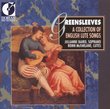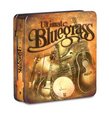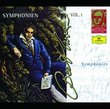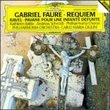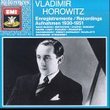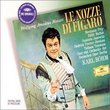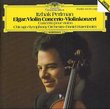| All Artists: Giacomo Meyerbeer, Richard [Classical] Wagner, Carl Loewe, Richard [1] Strauss, Fischer, Swedish Traditional, Frieder Weissmann, Karl Elmendorff, Leo Blech, Dr. Franz Hallasch, Opera Orchestra, Bayreuth Festival Orchestra, Ivar Andrésen, Herbert Janssen, Nanny Larsen-Todsen Title: Lebendige Vergangenheit: Ivar Andrésen II Members Wishing: 0 Total Copies: 0 Label: Preiser Records Release Date: 8/20/1996 Genres: Pop, Classical Styles: Vocal Pop, Opera & Classical Vocal Number of Discs: 1 SwapaCD Credits: 1 UPC: 717281891257 |
Search - Giacomo Meyerbeer, Richard [Classical] Wagner, Carl Loewe :: Lebendige Vergangenheit: Ivar Andrésen II
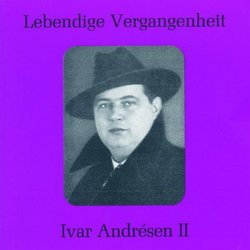 | Giacomo Meyerbeer, Richard [Classical] Wagner, Carl Loewe Lebendige Vergangenheit: Ivar Andrésen II Genres: Pop, Classical
|
Larger Image |
CD DetailsSimilar CDs
Similarly Requested CDs |
CD ReviewsMir aber bringt er DEN RING Anton Zimmerling | Moscow, Russia | 04/19/2009 (5 out of 5 stars) "I learned about this singer some 10-12 years ago and was immediately struck by his voice and art. Now I cannot live without him and this CD. Norwegian basso profundo Ivar Andrésen (1896-1940) was a superman. Not because his voice had a three octave range (that's true) or his powerful physique (he had it, and Bayreuth organizers and festival attendants of the 1920-1930s idolized him) or his solid vocal school (he was a pupil of Gillis Bratt who also was the teacher of Kirsten Flagstad, Göta Ljungberg and Joseph Hislop). Ivar Fritjov Andrésen was one of the few singers, who could identify themselves with gods and heroes of the Wagnerian theater - and embody this epic illusion on the scene. His electric recordings made in 1926-1929 show this remarkable gift. It is sad that such an artist admired by great conductors of his day - Fritz Busch (a conductor most closely associated with Andrésen in Dresden, Berlin and at Glyndebourne festival), Arturo Toscanini or Thomas Beecham - is largely forgotten. He was the first Norwegian singer at the MET, but left it in 1932 - an unwise step for his career. He also smoke cigars and drank - surely unwise for his health. But all this does not matter for the great recordings available on this CD.
The voice itself is overwhelming. Two Hagen monologues (track 6 on this CD and track 13 on Andrésen, vol. 1 on Preiser) are in a class of their own. Many famous Wagner basses of the past look boyish compared with Andrésen's long breath and dark timbre: he erupts long yet clearly articulated phrases like "Hier sitz' ich zur Wa-a-cht, we-e-e-ehre den ho-o-o-o-o-hen Ha-a-a-lle gen Feind" with ease and never wanders from pitch. His Gurnemanz (track 8 on this CD and tracks 14 & 15 on Andrésen, vol. 1), König Marke (tracks 3-5 on this CD) are stunning vocal portrayals too. That leading Wagner singers could be fine interpreters of songs, ballads and German Lieder is not so atypical for 1920-1930s but Andrésen's chamber recordings on this CD (tracks 9-14) nevertheless shine out. My only complaint is that there are only two ballads by Carl Loewe and only two Lieder by Richard Strauss. Loewe's `Tom der Reimer' (track 9) is usually performed by tenors or high baritones: it is amazing to listen how easily Andrésen adjust his huge bass to the cantilena of `Er küsste sie. Sie küsste ihn. Ein Vogel sang im Eschenbaum'. But my favorite is another piece by Carl Loewe -`Der selt'ne Beter' (also known as `Der alte Dessauer'). This is a setting of a rather awkward text: a man who lost his daughter likens himself to God the Father and addresses his `infrequent' (Ger. selten) prayer to him. With a lesser artist all this might sound hopelessly sentimental, but Andrésen's deepest voice saves this `de profundis' collision and adds a touching portrayal to a long gallery of ballad figures created by Carl Loewe - a composer whom Wagner and Schumann held in high esteem. Richard Strauss's `Ruhe, meine Seele', Op. 27 No.1 (track 12), is a beautiful Lied: in the chosen tonality it requires from a bass a lot of singing in a high tessitura. Not a problem: Ivar Andrésen had all the notes - his outburst on `Diese Zeiten sind gewaltig/ bringen Herz und Hirn den No-o-o-ot' with subsequent resignation on the final words `und vergiss, und vergiss was dich bedroht' (`and forget what is threatening you') are unforgettable. Fischer's `Im kuehlen Keller sitz' ich hier' (track 13) is a famous concert encore: this is the best version I know (and I know the acclaimed versions by Mardones Great Spanish Bass - Operatic Arias & Songs, Bohnen, Natzke, Mikhailov or Neroni Lebendige Vergangenheit: Luciano Neroni). Andrésen's hero declares that he won't move from the spot until he drinks all the wine; here is no frolic loafer and no circus artist trying to enthrall you with octave leaps and thrills. It is a grave monumental drunkard who is just awfully thirsty: `...the more he drinks, the more he needs wine'. This guy knew what he sang about: Ivar F.Andrésen followed this advice in everyday life too... The text of the final item - the Swedish ballad `Per Svinaherde' (track 14) is hardly understandable to people who don't know Scandinavian languages (Andrésen sings it in Swedish, not in his mother tongue, Norwegian), but many listeners will be caught by the arresting timbre and the wide range of Ivar Andrésen's singing alone. This ballad is about a guy who is `sitting on a hummock singing: come, fa-la-la-la-lej (sang he - fa-la-lala-lej)'. The worm-in-the-bushes (a Biblic allusion?) is hissing from the bushes: `you won't get any maiden in your arms for a good year'. But the guy is not embarrassed: he drops his old hat and everyone sees a gold crown. `I am no swineherd, though you might think so. I am the greatest king from all whose feet have ever trod this earth - come, fa-la-la-la-lej (sang he - fa-la-lala-lej)'. Precisely so. And not only because of the gold crown or extra low bass notes. Don't miss other Ivar Andrésen's CDs (Lebendige Vergangenheit: Ivar Andréson,Ivar Andrésen sings Wagner,Wagner: Tannehäuser - Bayreuth Festival 1930 (2 CD Box) (Pearl)): he did not leave us many. Anton Zimmerling " |

 Track Listings (14) - Disc #1
Track Listings (14) - Disc #1


